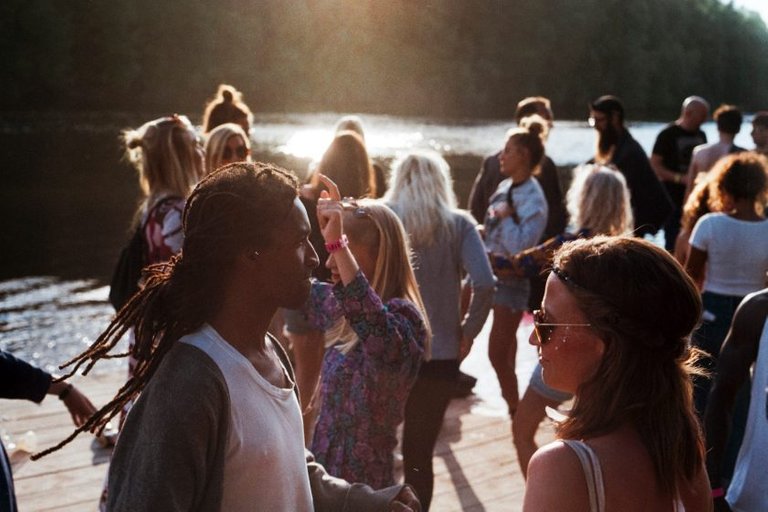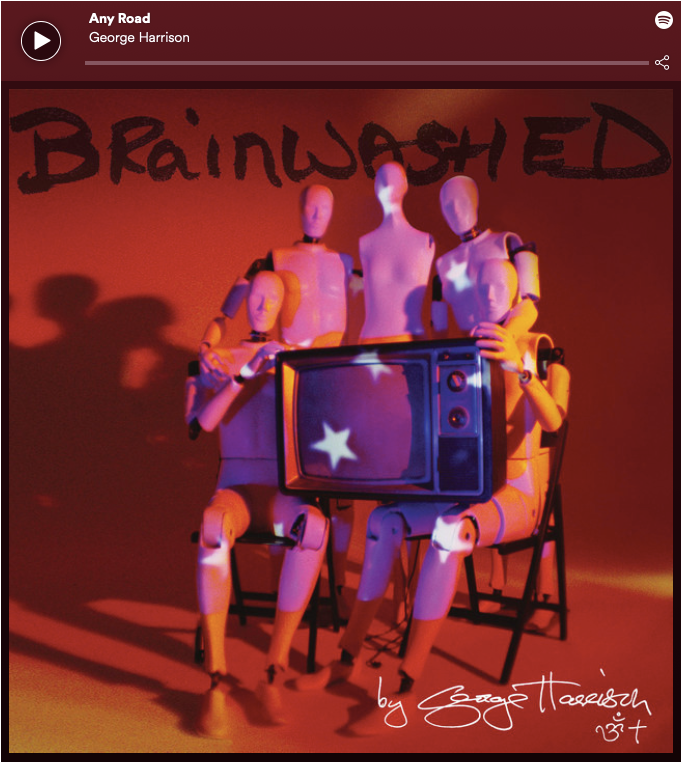Meditations on plurality and poly-culturalism

Photo by Jens Johnsson on Unsplash
If you don't know where you're going,
Any road will take you there.
— George Harrison
A couple of years ago, I found myself repeatedly embroiled in dialogues on other social media platforms with people who hold and express views that I can only describe as ‘dogmatic’. This was in many fields: sexuality, marriage equality, the “gender wars”, religion, politics… and so on and so forth. It actually is the reason I took myself away from one particular platform which shall remain nameless.
Basically, think of any ‘trending’ topic, and there would be no shortage of tools who can not engage in debate because they believe that their way is The Right Way; and usually, the only way. The content of what they say isn't so much of a problem, but their inability to reflectively consider other points of view, or somehow incorporate what other people say into their thinking is.
“But Petah,” I hear you say, “you bang on about Taoism all the time. Isn’t that taking a side? Aren’t you doing the same thing?”
Yes, that’s true.
And also, no.
What I’m drawn to yīnyáng theory and philosophical Taoism for is the pluralism inherent in that idea. In that epistemological framework, the unique nature of each and every individual is presupposed as a fundamental truth. Not only that, but this uniqueness is perfectly normal.
I invite you to pause before continuing to read, and just let that sink in for the moment…
In this paradigm, all life is unique; not just humans, but all life-forms. It’s not only that we are all different, but so too are our experiences, personal histories, thoughts, feelings, opinions, and so on and so forth.
7.7 Billion unique individuals, with unique sets of experiences, and (potentially) unique perspectives on the world.
Again, just let that sink in for a moment…

Photo by Roland Denes on Unsplash
In my own meditations, this led me to an understanding that universal and social harmony could emerge from allowing each and every individual being to express themselves uniquely.
The ancient Chinese created structured rituals of behaviour that acted as frameworks to enable such a way to live; at least they attempted to do so. Unfortunately, there were plenty of other people who felt this was not appropriate — these were the learned, aristocratic gentry who had a stake in a society where this didn’t happen.
Sound familiar?
Nowadays, anyone who speaks about such ideas is slapped with some kind fo nonsensical label: “relativist”, “postmodernist”, or my personal favourite “cultural Marxist”. The fact that this idea existed and was popular in China 2500 years ago clearly doesn’t make this a “postmodernist” idea. This idea isn’t even unique to Taoism. If you happen to know your history and/or anthropology well enough, you’d recognise that there were many cultures, past and present, that hold this idea.
For me personally, thinking about these ‘relativistic’ and ‘pluralistic’ ideas is an antidote to dogma, homogeneity, and hegemony.
I’m trained to observe patterns in nature and human physiology. I can recognise patterns in groups of people, or patterns within an individual. Because the universe (in a Physics sense, not in a ‘rainbow-pooping unicorn new-age’ sense) is constantly in flux, that individual may change within the pattern, becoming an exception to the rule.
In the paradigm of philosophical Taoism, there is no need to concern oneself with Truth (an absolute, static, unchanging truth); for in many ways, it doesn’t actually exist. This makes for a very uncertain existential world-view.
I’m OK with that. Even though there may be moments I feel somewhat overwhelmed by it, I feel OK with the idea of living in an uncertain, chaotic universe. And sometimes I don’t, and that’s also OK.

Photo by Johannes Schaefers on Unsplash
I find many other people struggle with this level of uncertainty — those people who feel the need for dogma, and want the world to be bland, homogenous, and mediocre. That’s also OK, and valid for them; I wish them well in their beige world. Who knows, maybe that too will change at some point, in different times, places, or contexts.
Even as I write this, I recognise the inherent un-truth of what I’m saying; maybe there is a universe somewhere where plurality and relativity doesn’t exist, where life is governed by a static, unchanging Truth.
And I’m OK with that too; because that’s the nature of the 道 Dào.
I can already hear my critics say, “that’s idealistic and unrealistic!”
My response to that is, “what are you afraid of thinking that way for?”
For me, plurality and poly-culturalism is not just an idea; it’s an application of how I engage in the world, and with everybody in it.
The idea that someone — anyone — has all of the answers, and knows The Truth seems like the height of hubris to me. Nobody knows squat. None of us really have any clue as to what’s really going on, or where we’re headed. All we can see is what is ahead of us, without being able to see what’s just on the other side of the horizon. So why not just take whatever road we find ourselves on, and see where it leads us?
Like water, this idea is hard to grasp: once you think you have it, it slips through your fingers.

This post originally appeared on my Medium publication À Bric Et À Brac.





This post originally appeared at Pandora’s Lost Gift.











It's all a thing of what you wish to give roots and strength to. Friendship isn't a truth or necessarily a good thing (much as society encourages it). But if you want true friendship in your life you have to practice it and convince yourself it is real.
In the end truth is what you decide it is. If you decide nothing is worth standing up for, then nothing is worth standing up for. If you decide everything has meaning, then it all has.
I resonate with Taoism on many levels but I am also careful with how much power I give it, because the Tao just doesn't give a fuck about Taoism 😂
Also I like the rainbow pooping new age Universe 😆
Nice post, lots of interesting points!
"the Tao just doesn't give a fuck about Taoism"
Ya.
Which is why I a) love the Tao; and b) don't call myself a Taoist.
😉🙏🏽☯️
I believe this is the kind of attachment which is said to lead to suffering...it's ok not to know, and in my experience, the real wisdom lies in the acceptance of uncertainty. Truth IS like water, that is beautiful.
I learned a phrase when I was over there, unfortunately I forgot it... it was something like 100 roads lead to the same place. A Buddhist volunteer at a temple told it to me and I wish I remembered it.
It's OK to have knowledge... just don't get attached to it.
It's be a pretty bland and beige world if everyone knew all the same stuff, wouldn't it?
Uncertainty certainly throws a lot of people off. Nothing like a bit of uncertainty to disrupt dogma!
😉🙏🏽☯️
Having spent 10 years in a Vaishnava Vedic ashram in my twenties, studying Vedanta texts from swamis in India, I can say that the fact that you don't even believe your own mental speculation should ring alarm bells.
Why would I want to believe anything that is a) mental; or b) speculation? None of it is Truth... it is merely — as you yourself put it — "mental speculation".
😉🙏🏽☯️
Hahahahahaha lol.
Touche.
Congratulations @metametheus! You have completed the following achievement on the Steem blockchain and have been rewarded with new badge(s) :
You can view your badges on your Steem Board and compare to others on the Steem Ranking
If you no longer want to receive notifications, reply to this comment with the word
STOPTo support your work, I also upvoted your post!
Great article!
When we live in a society that values homogeneity, we are left to feel alone and afraid to be our true selves.
If someone dares to speak their truth, they are shamed, which makes a person less likely to express who they truly are. Unfortunately, I feel like this is a big reason why we live in a society with increasing mental health disorders.
I am thankful for these platforms that allow us to write about our passion and to express ourselves in a safe and welcoming community.
Thank you for this post :)